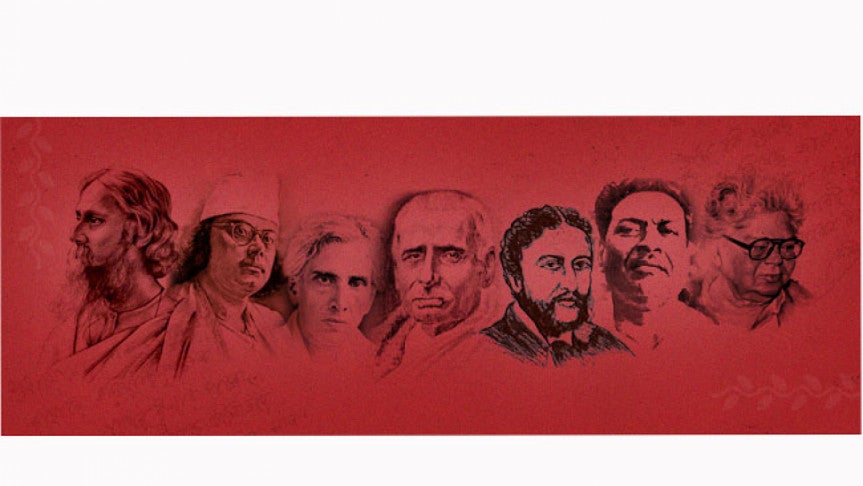No 'great' writer in Bangla literature for decades

Dhaka: Though the Bangla literature embraced modernism through Rabindranath Tagore, Bangladesh has seen no ‘great’ writer over the last few decades due to the spread of job-oriented education and falls in readership, bemoan educationists.
They also observed that once newspapers had played an important role in creating and promoting new and talented writers of Bangla literature, but things have changed these days due to their over-focus on business.
The educationists— Professor Serajul Islam Choudhury, Prof Abul Kashem Fazlul Huq and Prof Syed Manzoorul Islam— also noted with concern that not only Bangla literature, but also the country's political and all cultural arenas have not seen the emergence of 'great' motivators over the last few decades.
They suggested setting up more and more libraries alongside encouraging people to read books and practise the use of correct Bangla in every sphere of national life.
Prof Serajul Islam Choudhury said though many people are now writing many things, quality work is hardly seen. ‘It's not only applicable for Bangla literature, but also for movie, drama and music industries.’
He also regretted that the demand for Bangla books and its readers have decreased sharply, encouraging some people to write in English or quit writing.
The veteran educationist, now the Professor Emeritus of Dhaka University's English department, hoped that the new writers will one day get mature with their perseverance and handworks to deliver quality works and thus enrich the Bangla literature.
Prof Abul Kashem Fazlul Huq said there has been a lack of high quality or great writers in Bangla literature for many decades. ‘We didn't get any writer having the stature of Rabindranath Tagore, Kazi Nazrul Islam, Sarat Chandra Chattopadhyay and Begum Rokeya after 1947.’
He said many writers were born over the decades, some of them wrote some good poems, but could not do that much quality works to enrich the Bangla literature and bring any new dimension to it. The situation has aggravated gradually and now it turned the worst.’
Fazlul Haq, a former teacher of Dhaka University's Bangla department, said now many people write centering Ekushey Book fair to get cheep popularity through attractive advertisements and publication. ‘But, most books have no quality and literary value.’
‘This is the case in every sector, including politics and art and culture as we've failed to properly build the country. Political division and politicisation of all institutions are the main reasons behind the sorry state,’ he observed adding that the country's examination-oriented education system is not conducive to making students creative.
To overcome the situation, he said the intelligentsia must come out of their political affiliation and motivate people to learn and write Bangla. ‘A social awareness is necessary to increase people's reading habit. Media can also play an important role in this regard.’
Prof Syed Manzoorul Islam of Dhaka University's English department said Bangla literature has been passing through a critical time for the dearth of quality writers for several decades for many social reasons.
‘Not only in literature, but also in all other sectors we're not getting creative and great personalities. ‘We're not getting another Bangabandhu, or Bhasani, or Razzak and Alauddin Ali (late music composer) as now the aim of learning is to make money. I can say 90 percent of Dhaka University students only think of becoming BCS cadres, nothing else.’
Manzoorul Islam also observed that the number of readers is shrinking gradually for the aggression of visual culture and growing use of use of internet and social media. ‘People now want to see, but not to read. Visual contents make people subservient to another culture and lighter things, but reading improves the quality of one's thinking.’
To get rid of the situation, he said, investment in education should be increased to at least 25 percent from current 10 percent. ‘We need to focus on primary education. Around 64,000 primary schools in different districts should be equipped with quality teachers and books and facilities to improve the standard of education.’

 UNB
UNB




